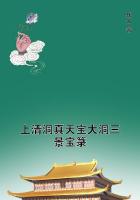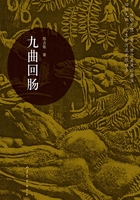Osmond touched on this matter that evening for the first time;coming very late into the drawing-room, where she was sitting alone.
They had spent the evening at home, and Pansy had gone to bed; he himself had been sitting since dinner in a small apartment in which he had arranged his books and which he called his study.At ten o'clock Lord Warburton had come in, as he always did when he knew from Isabel that she was to be at home; he was going somewhere else and he sat for half an hour.Isabel, after asking him for news of Ralph, said very little to him, on purpose; she wished him to talk with her stepdaughter.She pretended to read; she even went after a little to the piano; she asked herself if she mightn't leave the room.She had come little by little to think well of the idea of Pansy's becoming the wife of the master of beautiful Lockleigh, though at first it had not presented itself in a manner to excite her enthusiasm.
Madame Merle, that afternoon, had applied the match to an accumulation of inflammable material.When Isabel was unhappy she always looked about her-partly from impulse and partly by theory-for some form of positive exertion.She could never rid herself of the sense that unhappiness was a state of disease-of suffering as opposed to doing.
To "do"-it hardly mattered what-would therefore be an escape, perhaps in some degree a remedy.Besides, she wished to convince herself that she had done everything possible to content her husband; she was determined not to be haunted by visions of his wife's limpness under appeal.It would please him greatly to see Pansy married to an English nobleman, and justly please him, since this nobleman was so sound a character.It seemed to Isabel that if she could make it her duty to bring about such an event she should play the part of a good wife.She wanted to be that; she wanted to be able to believe sincerely, and with proof of it, that she had been that.Then such an undertaking had other recommendations.It would occupy her, and she desired occupation.It would even amuse her, and if she could really amuse herself she perhaps might be saved.
Lastly, it would be a service to Lord Warburton, who evidently pleased himself greatly with the charming girl.It was a little "weird" he should-being what he was; but there was no accounting for such impressions.Pansy might captivate any one-any one at least but Lord Warburton.Isabel would have thought her too small, too slight, perhaps even too artificial for that.There was always a little of the doll about her, and that was not what he had been looking for.
Still, who could say what men ever were looking for? They looked for what they found; they knew what pleased them only when they saw it.No theory was valid in such matters, and nothing was more unaccountable or more natural than anything else.If he had cared for her it might seem odd he should care for Pansy, who was so different; but he had not cared for her so much as he had supposed.Or if he had, he had completely got over it, and it was natural that, as that affair had failed, he should think something of quite another sort might succeed.
Enthusiasm, as I say, had not come at first to Isabel, but it came to-day and made her feel almost happy.It was astonishing what happiness she could still find in the idea of procuring a pleasure for her husband.It was a pity, however, that Edward Rosier had crossed their path!
At this reflection the light that had suddenly gleamed upon that path lost something of its brightness.Isabel was unfortunately as sure that Pansy thought Mr.Rosier the nicest of all the young men sure as if she had held an interview with her on the subject.It was very tiresome she should be so sure, when she had carefully abstained from informing herself; almost as tiresome as that poor Mr.Rosier should have taken it into his own head.He was certainly very inferior to Lord Warburton.It was not the difference in fortune so much as the difference in the men; the young American was really so light a weight.He was much more of the type of the useless fine gentleman than the English nobleman.It was true that there was no particular reason why Pansy should marry a statesman;still, if a statesman admired her, that was his affair, and she would make a perfect little pearl of a peeress.
It may seem to the reader that Mrs.Osmond had grown of a sudden strangely cynical, for she ended by saying to herself that this difficulty could probably be arranged.An impediment that was embodied in poor Rosier could not anyhow present itself as a dangerous one;there were always means of levelling secondary obstacles.Isabel was perfectly aware that she had not taken the measure of Pansy's tenacity, which might prove to be inconveniently great; but she inclined to see her as rather letting go, under suggestion, than as clutching under deprecation-since she had certainly the faculty of assent developed in a very much higher degree than that of protest.
She would cling, yes, she would cling; but it really mattered to her very little what she clung to.Lord Warburton would do as well as Mr.Rosier-especially as she seemed quite to like him; she had expressed this sentiment to Isabel without a single reservation; she had said she thought his conversation most interesting-he had told her all about India.His manner to Pansy had been of the rightest and easiest-Isabel noticed that for herself, as she also observed that he talked to her not in the least in a patronizing way, reminding himself of her youth and simplicity, but quite as if she understood his subjects with that sufficiency with which she followed those of the fashionable operas.This went far enough for attention to the music and the barytone.He was careful only to be kind-he was as kind as he had been to another fluttered young chit at Gardencourt.















